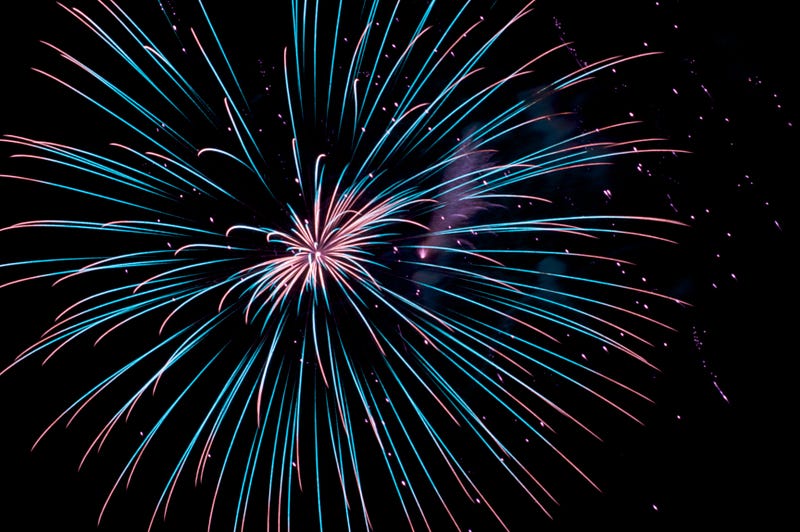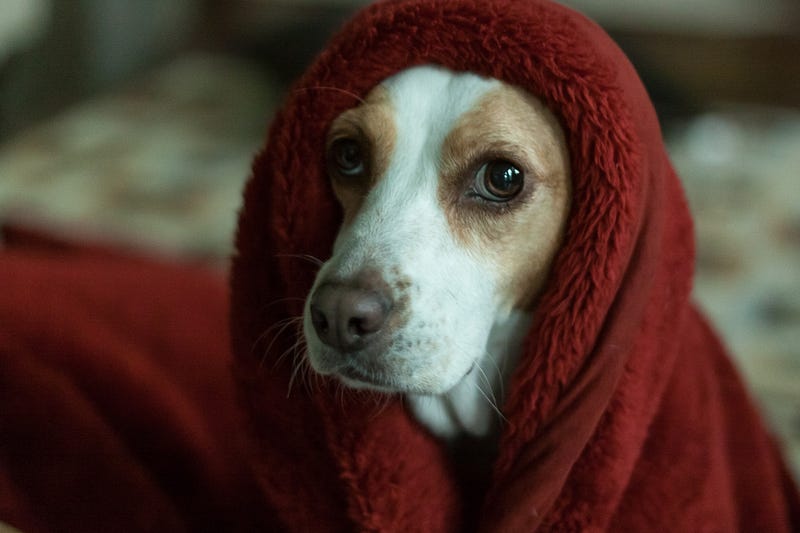Help Your Dog Cope with Fireworks: Science-Based Strategies
Written on
Understanding Noise Phobias in Dogs
Fireworks can be a source of joy for many, but they often spell distress for our canine companions. Dogs, especially those bred for herding, can be particularly sensitive to loud noises, which may lead to panic or anxiety. This predisposition suggests a genetic factor at play, as some dogs may not only fear fireworks but also react adversely to other sudden loud sounds like thunderstorms, vacuums, sirens, and gunshots.
Signs of anxiety in dogs can manifest in various ways. They might pace, tremble, bark, whine, or even cause damage to property. In extreme instances, some dogs might attempt to escape by jumping out of windows or may suffer severe consequences if left tied outside. Other dogs may display subtler signs of distress, such as excessive lip-licking or drooling, while some may go completely still and unresponsive.

Strategies to Alleviate Fear
Fortunately, modern science offers ways to help our furry friends manage their fear during fireworks. A tired dog is usually a calm dog, so engaging your pet in physical activities such as a long walk or a game of fetch before the noise begins can be beneficial. Keeping your dog indoors during fireworks and ensuring it's on a leash if taken outside can prevent accidents or escapes.
Statistics show that about 40% of dogs experience noise anxiety, and July 5 is notoriously the busiest day for animal shelters dealing with runaway pets. Microchipping your dog is a vital precaution, along with ensuring they wear a collar with up-to-date contact information.
Creating a Safe Space
Fearful dogs often seek refuge in small, dark places. Consider setting up a cozy, secure environment for your pet, such as a crate or a darkened room. Heavy curtains can help muffle the sound of fireworks and block out bright flashes of light, but ensure there is adequate airflow for your pet's comfort. It's also wise to remove any items that might be destroyed during a panic episode.
Modern technology can aid in reducing noise exposure for dogs. Products like “Mutt Muffs” or “Happy Hoodies” can help, and using a white noise machine or playing calming music can also mitigate the impact of loud sounds.
Dog Fireworks Anxiety Prevention: How To Keep Your Dog Safe And Calm
This video discusses practical strategies to help dogs cope with anxiety during fireworks.
Natural Remedies and Comforting Techniques
Calming pheromones can be effective for many dogs, though the scientific support for these products varies. Trying a piece of your unwashed clothing can also provide comfort at a lower cost.
Just as some individuals with autism benefit from anxiety wraps, dogs may also find solace in these gentle pressure garments, which can help lower their heart rate and ease anxiety.
Always be there for a dog that seeks comfort, but respect their need for solitude if they choose to hide. Offering favorite treats can serve as a distraction during loud moments, helping to associate the noise with something positive.
In severe cases of anxiety, consult your veterinarian for potential calming medications, such as Sileo, which helps manage the fight-or-flight response without causing sedation. For a long-term solution, your vet may recommend a qualified animal behaviorist to create a desensitization plan for your pet.
If your pet goes missing after fireworks, contact local shelters and veterinarians for assistance. Posting "lost dog" notices in your neighborhood and online platforms can also help.

Preparing Your Dog for Fireworks
How to Prepare Your Dog for Fireworks
This video provides essential tips on how to prepare and reassure your dog for upcoming fireworks displays.